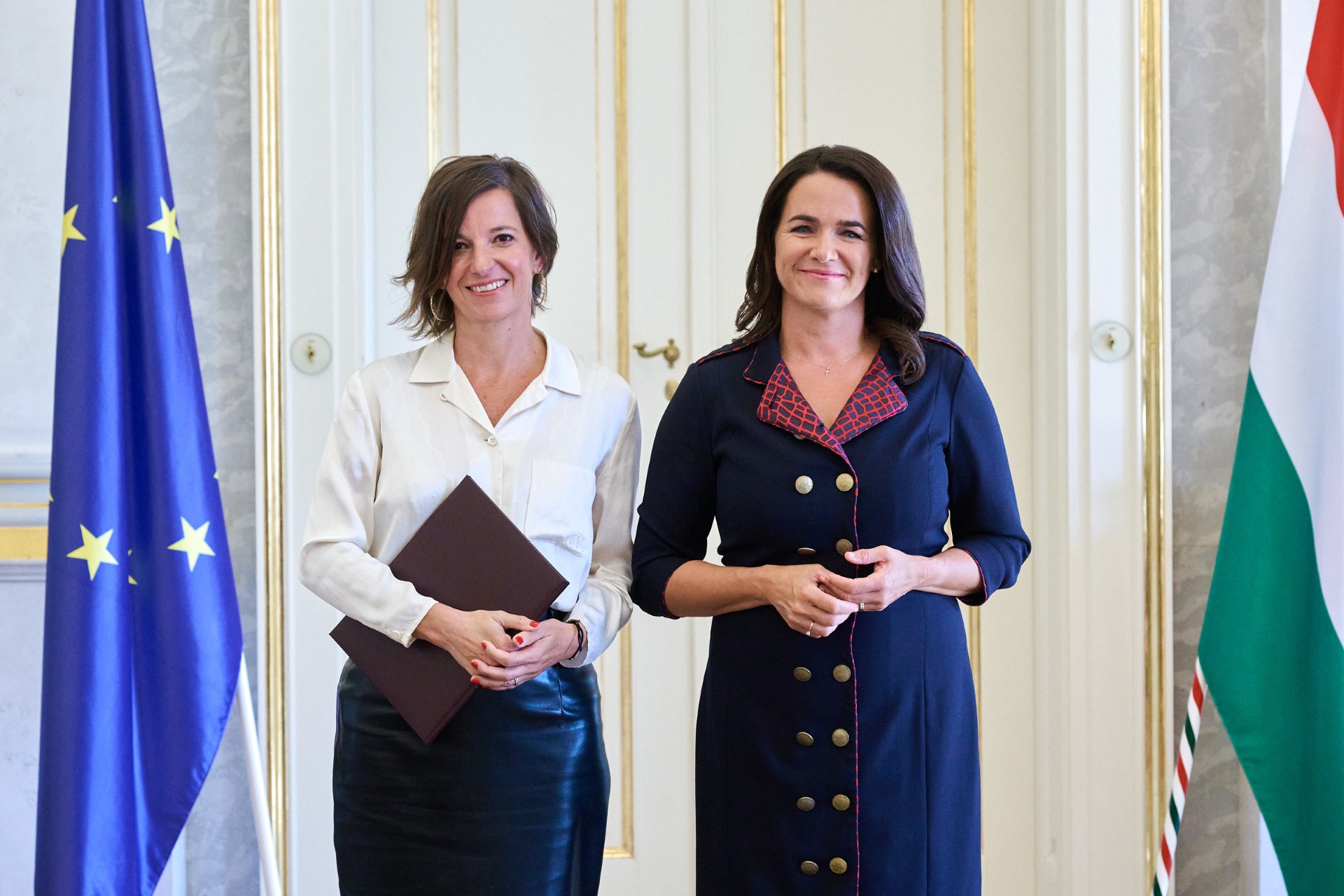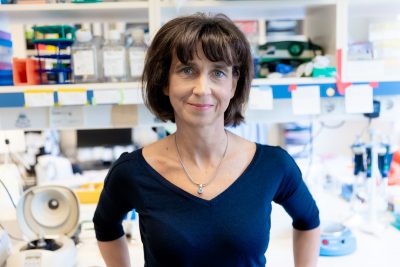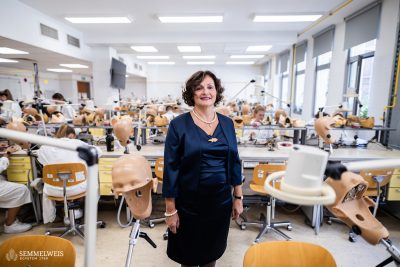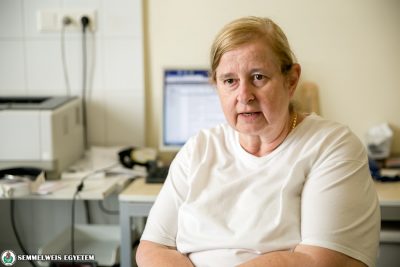When did you decide that you wanted to become a university teacher?
It wasn’t really my goal, and to be honest, I didn’t even think about it for a long time. However, recently, more and more colleagues have asked me when I would be appointed professor, so it was more from an external point of view. It is a great honour and I am very proud to have been appointed relatively quickly.
What specific research result can be linked to this success?
The appointment is more about the steadily increasing achievements and successes of the last ten years. I have twice won a grant named Lendület; the main research focus of my research group is the investigation of multi-organ complications caused by tissue scarring and the development of new therapeutic options. We have three patents registered worldwide. Recently, I am most proud of the fact that our drug development start-up SigmaDrugs, together with Semmelweis University, successfully completed a phase 2 clinical trial, testing our own innovations concerning patients with moderate COVID. I think it is a great achievement that a pre-clinical drug development from a university can reach a phase 2 trial in an academic setting, which is almost unprecedented in the last 30 years, and I think this is a true tech transfer and translational research. The new drug, which stimulates the Sigma-1 receptor, has been successful in inhibiting scar formation in preclinical models in a number of organs.
You are the first female professor in the more than 180-year history of the Department of Paediatrics. What feedback have you received and how do you feel about this pioneering role?
It’s a very good feeling and I am proud to have got here. I don’t think I was the first female colleague in the last 180 years to deserve it. Rather, it is only now that we have come to the point where this achievement is now recognized for women with a professorial appointment. The current management of the university, especially Dr. Béla Merkely, Rector, and Dr. Attila Szabó, Vice-Rector for Clinical Affairs, have a big role in this. I have been receiving special support from them for a long time, and I feel that more attention is being paid to the empowerment of women staff and managers at institutional level. I somewhat hope that this appointment will compensate my female colleagues from the past as well. On the other hand, I have many talented young colleagues, and for them, and therefore for me too, this is an important message: performance and perseverance are rewarded in the long-term.
This year, more professorships were awarded to women than in previous years, namely five. How do you regard the situation of women researchers?
I think it’s important to talk about such, so that this is no longer an issue in the foreseeable future. There are a number of excellent initiatives: the MTA has set up a postdoctoral fellowship for women researchers and there is the L’Oréal Women in Science Award, and even scientomanymetry.com counts years spent on GYES. These are all very important developments, but they also underline that women’s recognition, success and equality are still relevant matters today.
Nevertheless, in my experience there has been a clearly positive change in the last 10 years and I think that the environment at the university and the Department of Paediatrics is particularly supportive in this respect. I used to have bad feelings about some well-intentioned but actually unpleasant reinforcement, but I have learned to reframe these. “Ultimately, it just means that what I’m doing is important, and has to be addressed.” But today I also get a lot of positive feedback from male colleagues: for them, the recognition of women leaders is becoming more and more important, too.
As a successful researcher, research team leader and mother of three, what advice do you have for maintaining a good work-life balance?
The most important thing is to be honest from the start and to be clear about your own needs, whether at work or within the family – which is not always easy. We need to forget the often harmful stereotypes: it is not our job to please others. What is important is to be in tune with our own goals and values. For me, for example, it is crucial to go to the gym two or three times a week; it recharges me, so without it, I would not be able to perform as a mother or as a researcher. Being honest with ourselves also means that sometimes we have to make difficult decisions: such was the case when, after 10 years of clinical work, I realized that the parallel duties of patient care, science and family logistics was no longer compatible. Research work is much more flexible in terms of scheduling, but still, it requires a lot of planning to keep the day-to-day running smooth.
This year, a total of five women have been appointed as new professors at Semmelweis University, the highest number in recent years. Several of the new recipients are also pioneers in their own departments and institutes, the first female professors. In our series in Hungarian, you can read interviews with all five of them; the interview with Dr. Hajnalka Vágó is available in English here and the interview with Dr. Ágnes Szirmai is available in English here.
Péter Pogrányi
Translation: Viktória Kiss
Photo: Attila Kovács – Semmelweis University, Gyula Bartos – Sándor Palace




